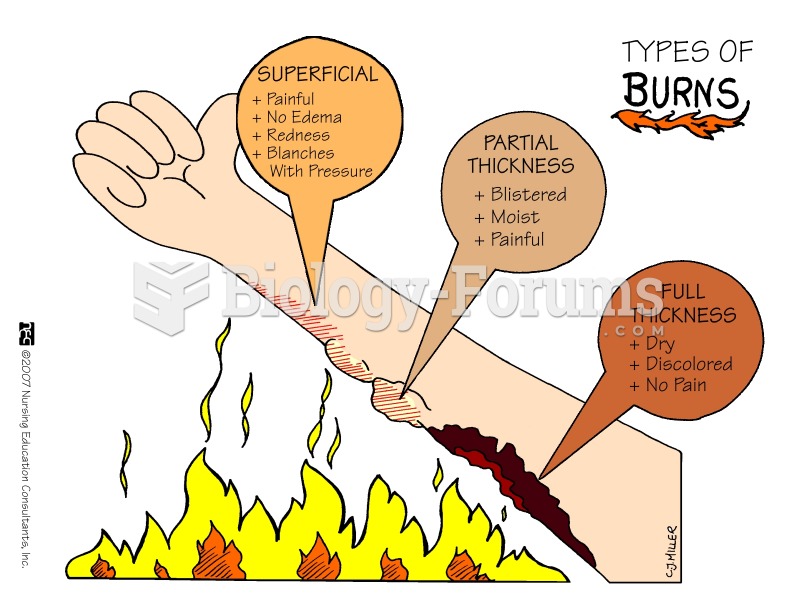Answer to Question 1
B
Feedback
A Incorrect: The nurse working with children with severe burns who are in pain and anxious will not best help the child by touching the child even if this hurts. Touching the child causes discomfort and additional pain and is not therapeutic.
B Correct: The nurse working with children with severe burns who are in pain and anxious will best help the child by holding the hands 2-5 inches from the client's body. Therapeutic touch can be implemented by holding the child's hands and is based on the assumption that the human energy field extends beyond the skin.
C Incorrect: The nurse working with children with severe burns who are in pain and anxious will not best help the child by taking as much time as necessary then having to touch the child. Touching the child causes discomfort and additional pain and is not therapeutic.
D Incorrect: The nurse working with children with severe burns who are in pain and anxious will not best help the child by not touching the child and staying at least 2 feet away then possible. By staying at least 2 feet away then possible is not therapeutic and may contribute to the child's feeling of isolation and concerns about how he or she looks.
Answer to Question 2
A
Feedback
A Correct. As a key representative for community health, the nurse needs to routinely inquire about the presence of firearms in the home and teach safety to the parents and children.
B Incorrect. The presence of firearms in the home is not illegal.
C Incorrect. Individuals retain the right to have firearms in the home; the issue is keeping children safe around them. It is not appropriate for the nurse to express his or her opinion, nor is it appropriate to insist firearms be removed.
D Incorrect. It is inappropriate for the community health nurse to schedule the family members for a gun safety clinic.







